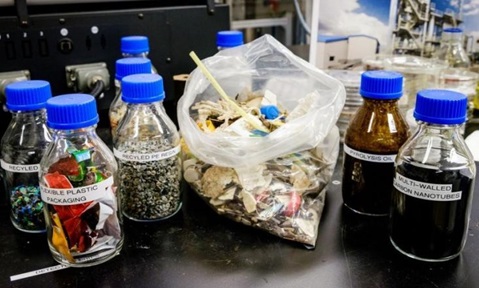NEWRIComm helping with Nepal's water woes

In some parts of Nepal, people have difficulties accessing clean and safe drinking water. Without treatment, water drawn from the ground may contain chemicals such as arsenic, a cancer-causing toxic chemical, is fatal in high doses. Elevated arsenic levels in groundwater used for consumption purposes in parts of Nepal is an ongoing public health concern.
Past studies have found that Nepal’s Nawalparasi district is a severely arsenic affected area. To help prevent health issues for people without access to clean water, scientists from NTU Singapore and Nepal have constructed a clean water facility for children at the Shree Janta Secondary School and their communities.
Located in the in the Newalparasi district, the clean water facility comprises a simple bio-sand filter system where iron nails are crucial to the project, which are known to be an excellent adsorbent for arsenic. Once the arsenic-toxic element is absorbed, the clean water is stored safely in the third and lowest tank, where users can easily access through taps. The filter system is a sustainable option where operations and maintenance in the long run was considered , said Professor Shane Snyder, Executive Director of NTU’s Nanyang Environment and Water Research Institute (NEWRI), which provided the engineering and technical expertise for the water facility construction through its philanthropic arm NEWRI Community Development (NEWRIComm).
The project is supported by the Lien Environmental Fellowship (LEF), a non-profit programme that empowers leading academics and researchers from ASEAN, South Asia, and Central Asia to tackle water and sanitation challenges in their home countries.






.tmb-listing.jpg?Culture=en&sfvrsn=5fcb025f_1)